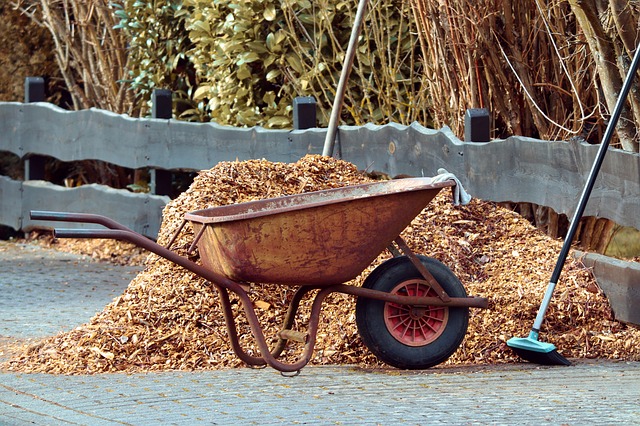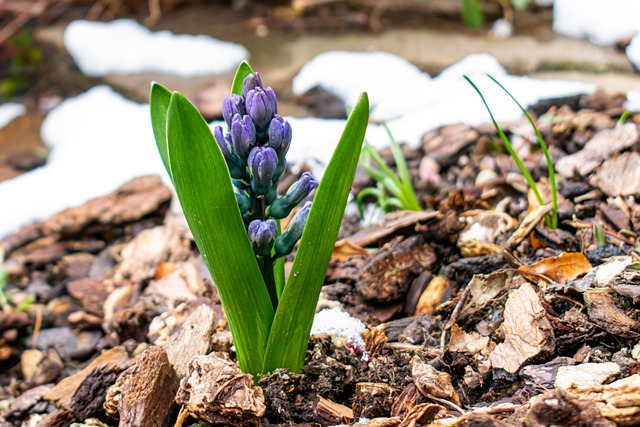Benefits of Mulching Your Lawn and Garden – Reasons Why You Should!

Mulching is one of the simplest, most effective ways to improve the look and health of your lawn. By removing grass and other vegetation as it grows, mulching helps to prevent moisture and erosion from reaching the soil while also adding organic matter and nutrients. In addition to helping your lawn look better, mulching can also help to prevent diseases and pests, improve soil fertility, and reduce the need for fertilizer. So what are the benefits of mulching? Read on to find out!
Table of Contents
Preserves the Soil’s Moisture
In the spring and summer, mulch can help our plants stay moist and keep other plants away from them. This means that wood chips keep the soil moist so that plants can use that water to grow. Mulching the ground reduces competition for nutrients, water, and space from nearby plants. Turf is seen as a threat to our landscape plants. It is best for the health of the plants we want to grow if we keep the competition away from their roots.
Protection from Harm
A condition is known as “lawnmower blight” can be prevented by mulching our gardens. Lawnmower blight, which occurs when a mower or weed trimmer gets too close to plants and damages the trunk or branches, is common among our trees and shrubs that grow right in the turf without mulch. The tree’s water and nutrient supply is hampered due to this damage. Wood rot can enter a tree after a single damage incident, but this usually doesn’t kill the tree. The tree may die if it is repeatedly harmed. Having a mulch ring around the tree will keep lawnmowers away from it.
Protection During Winter
This helps protect our plants during the winter. However, mulch doesn’t keep the roots of the plants warm. It keeps the soil from freezing and thawing, which is bad for the plants. During the winter seasons, the soil freezes and thaws a lot, pushing a plant out of the ground. This is called “frost heaving.” These kinds of things can kill the plant’s crown. To protect our plants, we often add more mulch in the fall.
A lot of fall mulch is put on some plants, like strawberries. Cold winter weather can damage the tiny, immature flower buds that begin growing in the fall. It’s important to wait until spring, when the weather is warmer, before putting them outside. As soon as the plants start to grow and show through the mulch, you can pull it back away from the plants and keep it nearby so that it can be used to cover the plants up again if it gets cold again. Because of the risk of frost, it’s best to wait until early May to cover the plants fully.
Contributes to Soil Health
Bark, pine needles, and other materials that decompose to enrich the soil are commonly used to make mulch. These boost the health and vibrancy of the plants, making them stronger and more resilient.
Managing Weeds
In addition to deterring weeds from sprouting, a thick layer of mulch serves as a barrier. Mulch prevents weed seeds from germinating because it completely covers the soil and blocks the light they require for growth. The second reason is that bare dirt is an ideal environment for weed seeds to land and germinate. To prevent weeds from infiltrating the soil, mulch all areas where the soil is exposed to the elements.
Insect Repeller
It is possible that natural oils found in some mulch components, such as tree bark, will protect your plants from insects and rodents. These essential oils are repellent, keeping pests away from your garden. Certain mulches more easily deter these unwanted guests than others with stronger scents.
Insulating the Soil
Insulation and temperature regulation are provided by mulching the soil. As a result, roots remain cool in summer and warm in winter. Maintaining a healthy garden is all about reducing the stress on your plants, in which mulching is one of the cool ways to do this.
Minimizing Disease Spread
Because mulching prevents soil from coming into contact with certain plants’ leaves and fruits, certain plants can reap significant benefits from mulching. As a result, the likelihood of fungus disease and fruit rot spreading to the plants is reduced. The leaves of some plants become susceptible to fungal growths when mud splashes on them, but mulching reduces the likelihood of this happening.
Promoting Beneficial Insect Populations
Incorporating organic mulch into your garden can encourage the presence of earthworms. As any seasoned gardener will attest, earthworms aid soil structure and nutrient cycling.
Makes Your Garden Look More Presentable
When used to fill in the gaps in a garden, mulch can provide a finished appearance while also being one of the easiest to keep up with. It may be necessary to provide extensive care for grass, groundcovers, and other fillers, such as mowing and watering, and they may compete for resources with the plants in your garden to survive. Mulch is low maintenance and will never compete with your plants for water or nutrients.
Keeps Soil Nutrients
If you’re planning on doing any commercial landscaping, adding mulch is an excellent way to improve soil nutrient levels and keep them there over time. The rain and wind can’t wash away the nutrients because of the material. As it breaks down and releases nutrients, organic mulch helps to keep your soil rich and healthy by preventing weeds from sprouting up. As the material is broken down, worms and soil microbes will provide the soil with essential nutrients, promoting a healthy ecosystem.
Prevent Soil Erosion
People who work on commercial landscaping projects always worry about soil erosion, but by mulching your garden, you could cut down on how much soil you lose to the weather. To start with, mulch keeps the soil wet, making it much more difficult to erode. As a result, mulching is also very important because it protects the soil from heavy raindrops that move it and the wind–mulching keeps the soil from being swept away.

